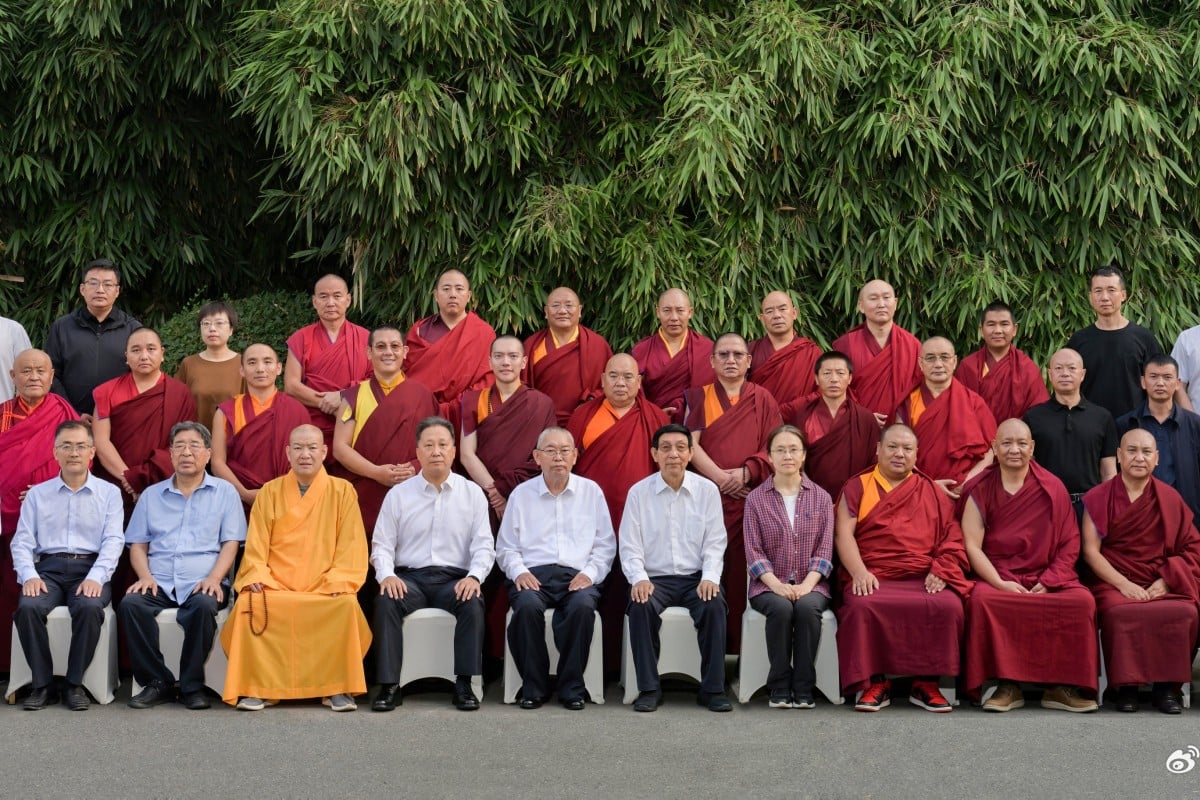For Beijing, the reincarnation of the Dalai Lama must follow Chinese laws
The concept was reiterated this week at a meeting attended by 50 monks recognised by China, but which Tibet’s spiritual leader has always opposed. The Dalai Lama could end the line of succession next year on his 90th birthday, excluding Beijing from controlling Tibetan Buddhism.
Beijing (AsiaNews/Agencies) – The reincarnation of Tibetan Buddhists must also follow Chinese law, this according to Chinese authorities, a notion reiterated at a recent seminar in Lanzhou, Gansu province, attended by about 50 monks recognised by the Chinese government.
This event has sparked fresh tensions with the Dalai Lama, the leader of Tibetan Buddhists in exile in India, who is expected to announce plans for his succession next year.
A pro-Chinese website, Tibet.cn, has reported that the seminar last Wednesday reiterated that policies for the “reincarnation of living Buddhas in Tibetan Buddhism” must be “compatible with socialist society”.
According to the High-Level Tibetan Buddhism College of China, a Beijing-based school that trains officially recognised monks, which organised the meeting, historical customs, including government approval, are “an important principle to be followed in the reincarnation”.
As with all religions recognised in the country, the Chinese government demands that the clergy swear allegiance to the Communist Party of China (CPC); in the case of Tibet, the issue of reincarnation is intertwined with that of sovereignty over the territory.
China fears that the death of the current Dalai Lama, who has opposed Chinese intrusion since 1950, could generate social unrest in the region.
Tibet’s spiritual leader and Nobel Peace Prize laureate had said that he would address the issue of reincarnation at the age of 90, that is, in July next year.
According to Tibetan tradition, the Dalai Lama, upon his death, is reincarnated in a child. Over the centuries, the child was found through a series of searches and rituals. But Beijing now insists that reincarnation must follow Chinese rules.
To this end, Beijing has introduced the ritual of the Golden Urn, an ancient imperial practice taken up by the CPC and incorporated into official Chinese regulations since 2007.
With this method, in 1989 China identified a Panchem Lama, another important religious leader in Tibetan Buddhism who, according to tradition, approves the recognition of the next Dalai Lama.
But Tibet’s current spiritual leader has stressed the illegitimacy of this process, and never recognised Beijing’s Panchem Lama, hinting that he wants to end his line of reincarnation, to exclude Beijing from having a say in the matter.
For some time now, Chinese authorities have been organising meetings aimed at monks to "sinicise" Tibetan Buddhism and bring it under their control.
In March, a seminar like the one in Lanzhou was held in the capital, while in mid-October the World Buddhist Forum will meet in the eastern city of Ningbo. The Dalai Lama has not been invited to this event since its start in 2006.
Experts note that Beijing wants to show Asian countries that "instead of India, where Buddhism was born, it is China that has the most influence," said Sana Hashmi, a researcher at the Taiwan-Asia Exchange Foundation think tank, speaking to Radio Free Asia.
The goal is to convince the world that is preserving Tibetan Buddhism.
“Since 2020, under [President] Xi Jinping's leadership, the CCP has intensified efforts to Sinicize Tibetan Buddhism, assigning this task to the Buddhist Association of China, which organizes conferences and events that serve as tools of soft power manipulation,” said Tenzin Dorjee, a Tibetan-American Buddhist, and a former commissioner at the US Commission on International Religious Freedom.
29/04/2020 16:44







.png)










